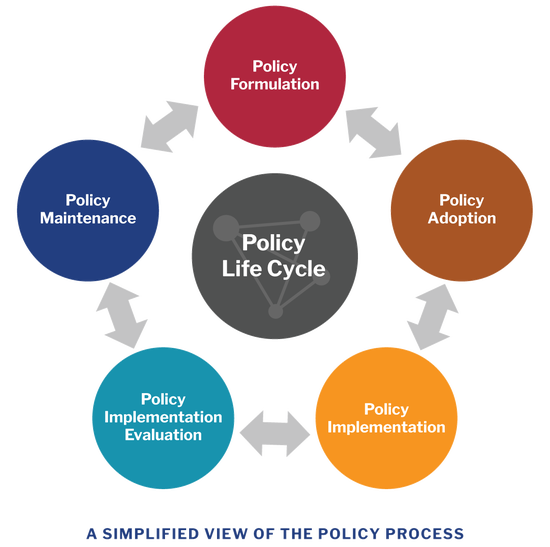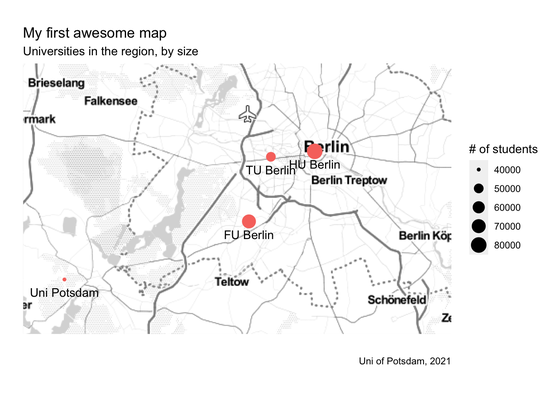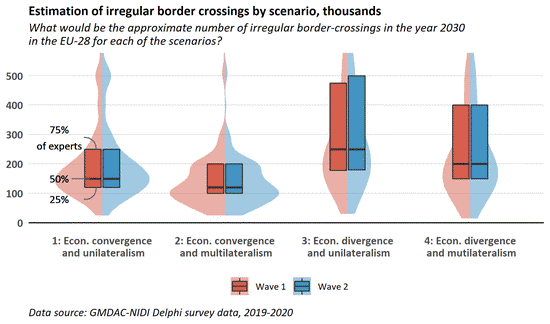Biography
Since January 2021, I am Professor for Applied Social Research and Public Policy at the Economic and Social Science Department of the University of Potsdam, Germany.
Before joining the University of Potsdam, I worked for the United Nations as data analytics coordinator for the International Organization for Migration’s (IOM) Global Migration Data Analysis Centre, for the World Bank as research consultant, and for the Migration Policy Group as policy analyst.
Have a look at my publications via Google Scholar.
- International migration
- Migrant integration
- Discrimination
- Social Media
- Elections
- Policy impact evaluation
- Quantitative research methods
PhD Economic and Social Sciences, 2016
University of Bamberg
Fulbright scholar, 2016
City University of New York, Graduate Center
Msc. European Studies, 2011
London School of Economics and Political Science
Selected Publications
Please find full list of publications here.
Khalil, S. & Tjaden, J (2024). The effect of reception centres on integration of refugees – Quasi-experimental evidence from Germany. European Societies. Online first.
Tjaden, J., & Heidland, T. (2024). Did Merkel’s 2015 decision attract more migration to Germany?. European Journal of Political Research. Online first.
Tjaden, J., & Spörlein, C. (2023). How Much Do “Local Policies” Matter for Refugee Integration? An Analytical Model and Evidence from a Highly Decentralized Country. International Migration Review, 0(0).
Tjaden, J. (2023). Web Scraping for Migration, Mobility, and Migrant Integration Studies: Introduction, Application, and Potential Use Cases. International Migration Review, 0(0). 2022
Tjaden, J., Haarmann, E., & Savaskan, N. (2022). Experimental evidence on improving COVID-19 vaccine outreach among migrant communities on social media. Nature Scientific reports, 12(1), 16256.
Tjaden, J. (2021). Measuring migration 2.0: a review of digital data sources. Comparative Migration Studies, 9(1), 1-20.
Tjaden, J., & Gninafon, H. (2021). Raising Awareness About the Risk of Irregular Migration: Quasi‐Experimental Evidence from Guinea. Population and Development Review. Online first.
Tjaden, J., & Dunsch, F. A. (2021). The effect of peer-to-peer risk information on potential migrants–Evidence from a randomized controlled trial in Senegal. World Development, 145, 105488. 2020
Tjaden, J. D., Schwemmer, C., & Khadjavi, M. (2018). Ride with me: Ethnic discrimination in social markets; European Sociological Review, Volume 34, Issue 4, 1 August 2018, Pages 418–432.
Tjaden, J. D. & Auer, Daniel (2018). Linking Migration Intentions with Flows: Evidence and Potential Use; International Migration, 57 (1), Pages 36-57.
Khadjavi, M., & Tjaden, J. D. (2018). Setting the bar-An experimental investigation of immigration requirements; Journal of Public Economics, Volume 165, Pages 160-169.
Tjaden, J. D., & Hunkler, C. (2017). The optimism trap: Migrants’ educational choices in stratified education systems. Social Science Research, 67, 213-228.
Projects
Policy
Teaching
For a full list of courses, visit my university website

Introduction to Policy Analysis
This course offers an accessible introduction to two core questions of political science: How and why are certain policies adopted and what is their impact?
Discrimination - Theory, evidence and policy responses
This course introduces students to theory, measurement, evidence and policy responses regarding discrimination along various categories such as ethnic origin, gender, appearance, age etc.
Evidence-based policy making - Evaluation & Monitoring
This course introduces students to main (qualitative and quantiative) approaches and methodologies for measuring the impact of policy programmes, projects or reforms.
International Migration - Introduction to theory and evidence
This course introduces students to the main theories, patterns and policy responses regarding international migration.

Intro to R for Social Scientists
This course offers an accessible and easy introduction to one of the fastest growing statistical packages used in social science and data science more generally. The course is designed for students with limited stats and data analysis background or those transitioning from other software packages (e.g. Stata; SPSS). All materials are available online allowing students to take the course at their own pace. This course will be updated over time. Feedback welcome!

Refugee Integration in Germany
Over a million people sought refuge in Germany since 2014. After a review of the meaning, theories and measurement of “integration”, the course will cover various dimensions of integration including the labour market, education, housing, discrimination and others. We will review the latest literature and discuss integration outcomes in relation to relevant government policies.

Research design in the social sciences
This course introduces students to what social science research is all about and how it works. Students will be first introduced to basic principles of how knowledge is produced. After students will work though various research designs, apply them to research questions and master the advantages and disadvantages of various methods.
Media

Potsdam Study: Right wing AFD dominates TikTok.
During the 2024 elections in 3 German states, we monitored the expsure to political content of new, and politically neutral users.

Broad media coverage on new “Merkel effect” study
Der Spiegel, ZDF, Frankfurter Allgemeine, Focus Online etc. report on new study

Vox, Apr 1, 2021: The US is telling migrants “don’t come.” They might not be listening.
How much does Biden’s messaging about the border matter?

Migration Data Portal, Apr 16, 2020: Forecasting the future of migration—many approaches, one commonality: uncertainty
Policymakers want to know what’s coming. Migration forecasts are not just in high demand, they are also difficult to navigate. Some approaches to discuss the future of migration require advanced knowledge of statistics, others require quite a bit of imagination. GMDAC’s Jasper Tjaden and Eduardo Acostamadiedo discuss the pros and cons of different approaches and what the experts think of future migration trends to the EU in 2030.

Guardian, Apr 12, 2018: When we think of migrants, why not include Einstein and Ronaldo
Many footballers, Oscar nominees and Nobel laureates are migrants. It’s time to overturn stereotypes about migration.
Contact
- https://www.uni-potsdam.de/de/socrespolicy/index
- August-Bebel-Straße 89, University of Potsdam Department of Economic and Social Sciences , D-14482 Potsdam
